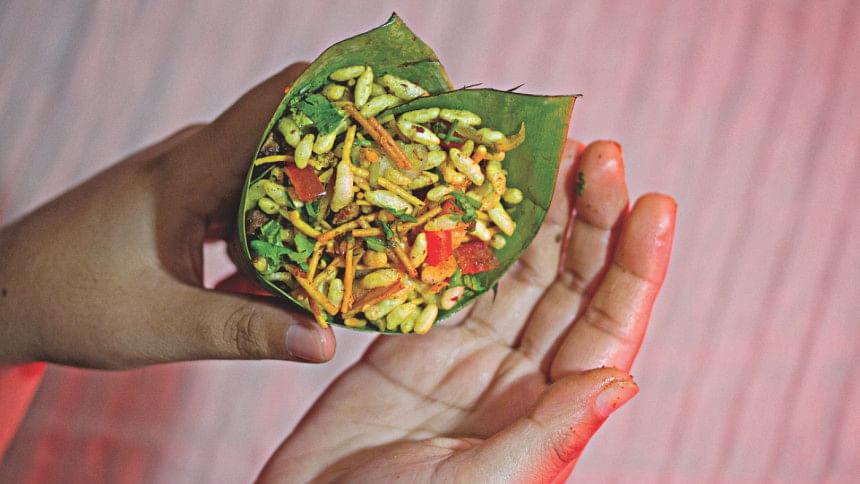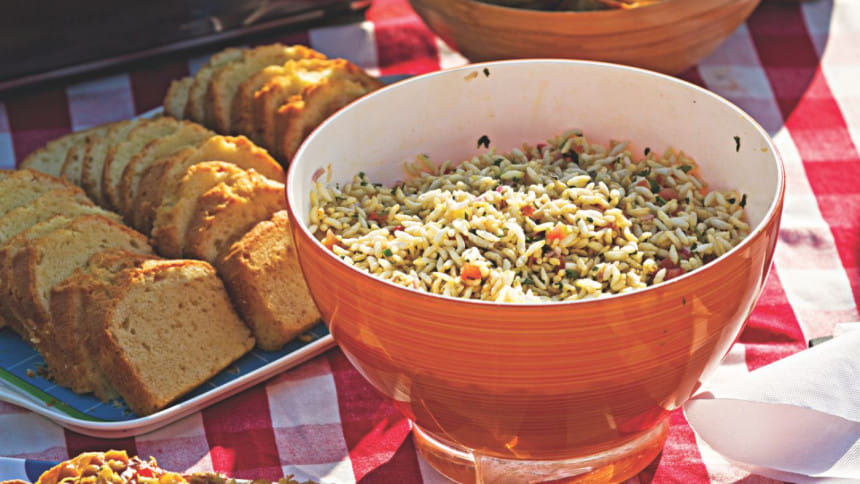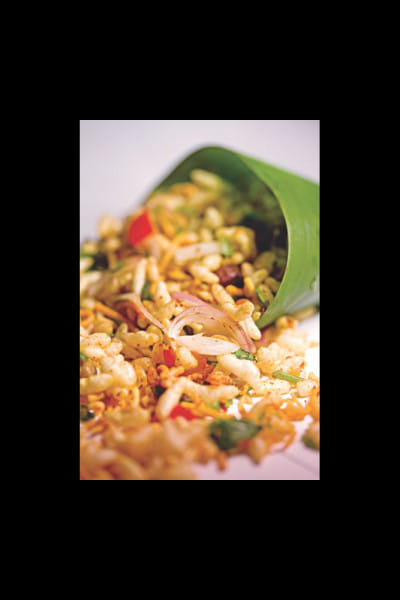Muri mania

Muri khao- I do not quite care how this phrase came to be. We all know the meaning. The urban dictionary would define 'muri khao' as an expression used by a person in response to another, to communicate his/her disinterest or disapproval of something, often meant in a derogatory manner, or as an expression of frustration - basically to tell someone to get lost.
I am amused how this simple and harmless two-word phrase, which literally asks you to eat puffed rice, got converted into something like that.
It also makes me literally want to eat jhalmuri, which is one of my comfort foods.
It's hard not to like jhalmuri. It's hard to mess up making jhalmuri, too. You can hardly go wrong. At its simplest, you just mix puffed rice with mustard oil and perhaps sprinkle some salt over it. With tea on the side, you're good to go.
Jhalmuri can be as simple or as complicated as you want it to be. And the jhalmuri-wala comes prepared with his variety of ingredients - tomatoes, onions, lemons, spices, cholas, green chillies, chanachur and so on - carefully set together in his small portable workstation.
He uses these ingredients, often asking several questions to customise to the customer's taste: "Jhal beshi na kom? Ghugni dibo?"
A good jhalmuri-wala always asks. An experienced jhalmuri-wala serving an old loyal customer, already knows.
He mixes the ingredients - and then the jar is closed and moved back and forth, continuously slapped on one palm, making a noise we are all so familiar with.
Not all jhalmuri-walas are created equal, of course. We all have our favourites.
Moreover, the past few years have seen the emergence of jhalmuri-walas who are a breed apart: they experimented with the humble jhalmuri and innovated boldly.

And they actually got away with it. At first, perhaps the average customer felt a little odd; paying as much as Tk 50 or Tk 100 or more, for jhalmuri. But customers were also quick to accept, because their common jhalmuri was elevated to a more evolved one.
Two such examples are Shahi Jhalmuri at the entrance of Banasree's Eastern Banabithi Shopping Complex (popularly called Dosh Taala Market) and Zhalmuri at Tajmahal Road, Mohammadpur. Both are extremely popular.
So, how about an egg jhalmuri? Nothing wrong with that. What to say to jhalmuri featuring brains or other offal? I say bring it on! Chicken jhalmuri? Sure! Why a jhalmuri with pigeon meat, though? Well, why not?

Those who frown upon these marvellous delicacies, I say to them: muri khao!
The basic quintessential element is properly retained in the evolved jhalmuri 2.0, with additions of spices, tamarinds, meats, and other ingredients, making it more flavourful and filling.
Whatever the case, one thing is for sure: muri in general is a food we Bangladeshis absolutely love and can never get tired of, be it the good old-fashioned simple jhalmuri, or the extreme ones, or the sweet and classic moa.
As for the extreme jhalmuris, they are made smartly; except - I am sorry to say, and this is just my opinion - the hyped Boro Baap er Pola, which seems to me an amalgamation of things just put together without much thought.
But otherwise, I keep an open mind when it comes to food - innovations are welcome, authenticity is not always a requirement, and there is no point in justifying what's tasty and what's not if you enjoy the meal with your loved ones.
I am not your choosy-picky food connoisseur, no sir. I am just a foodie; but one with a clinically serious appetite.
Photo: LS Archive/Sazzad Ibne Sayed

 For all latest news, follow The Daily Star's Google News channel.
For all latest news, follow The Daily Star's Google News channel. 



Comments